How school feeding is keeping children in classes in disaster and conflict-affected areas in Mozambique
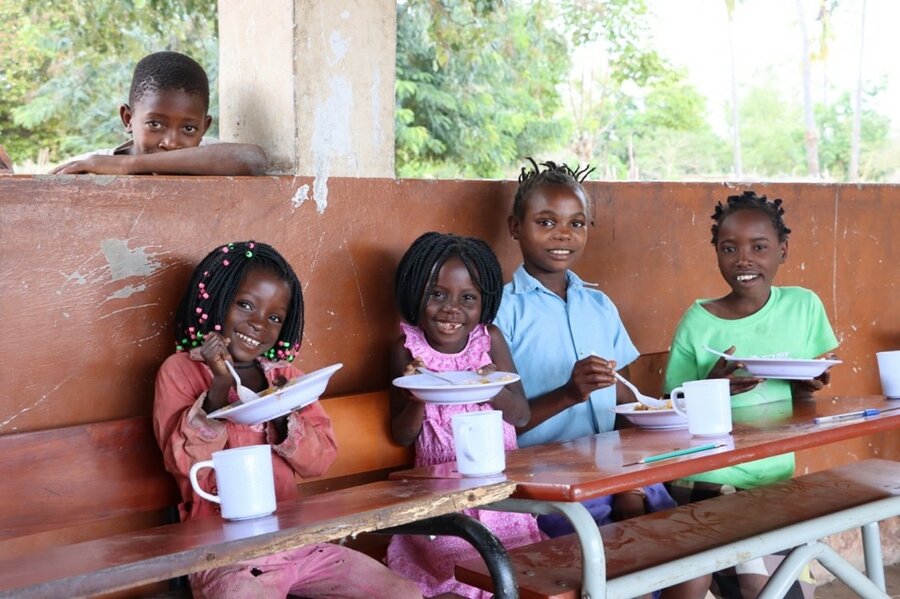
Mozambique is one of the most disaster-prone places in the world. In a country where over 65 per cent of the population live in rural areas and most rely on agriculture as their source of income , the destruction caused by cyclones, droughts, floods and pests affects millions of people. In addition, insecurity in Cabo Delgado Province has forced over 800,000 people – out of whom almost 50 per cent are children - to flee their villages and jobs.
Children are disproportionately affected by these crises. Violence and/or climate emergencies force children – especially girls – to drop out of school, as their families seek help in the fields or with domestic duties. Those who still manage to attend classes start their days on empty stomachs, which affects their learning and participation.

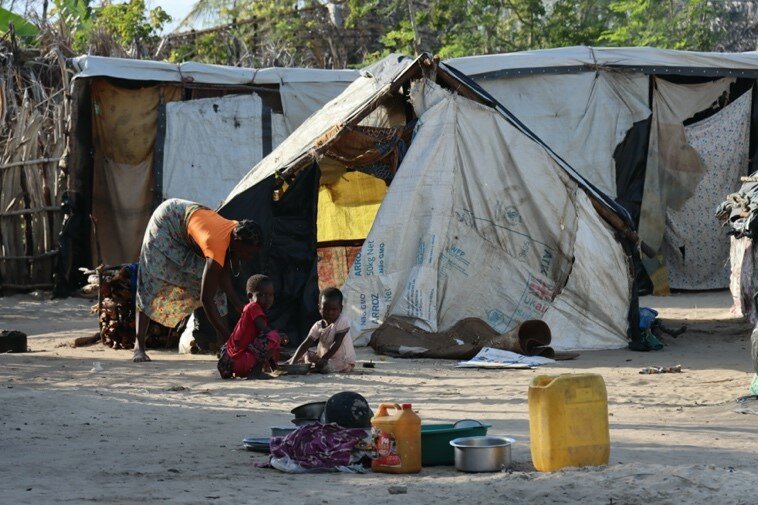
As a response to these challenges, the United Nations World Food Programme (WFP), in cooperation with the Ministry of Education of Mozambique and UNICEF, launched an Emergency School Feeding Programme in May 2021, financed by the Global Partnership of Education. The programme promotes school attendance and participation among children n crisis-affected areas, while improving their access to healthy food.
Through the programme, WFP has provided school meals to over 92,000 students from 168 schools in areas affected by Cyclones Idai and Kenneth (March and April 2019), and by the insecurity in Cabo Delgado Province. Depending on the school infrastructure, students receive either on-site nutritious hot meals or monthly take-home rations composed of rice, beans, oil and salt. Furthermore, as a way to stimulate local markets, most food is procured from local retailers.
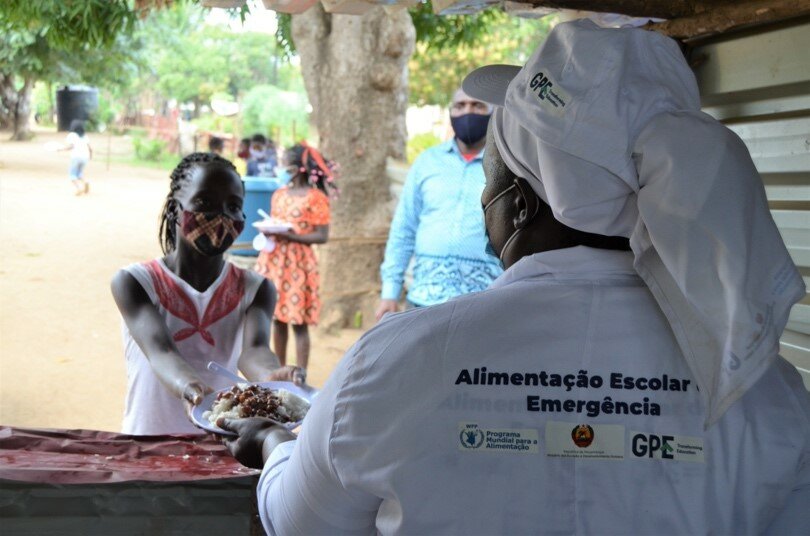
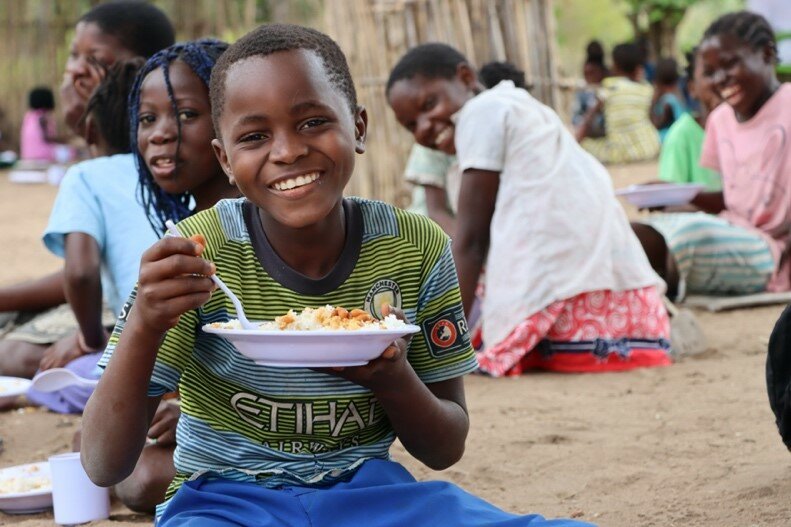
For Rosa, a mother of six, this programme is essential for the future of her five grandchildren. When Cyclone Eloise hit Buzi District, Sofala Province, in January 2021, houses including hers were heavily damaged and fields were destroyed, deeply affecting livelihoods and lives.
“There were children who were not going to classes because they did not have [enough] to eat," she said. "So this project is important to keep children at school." When asked about the importance of education, she said: “I have never gone to school but I want to make sure that my grandchildren have this opportunity. Education is key to finding a better job, it is key for a brighter future.”
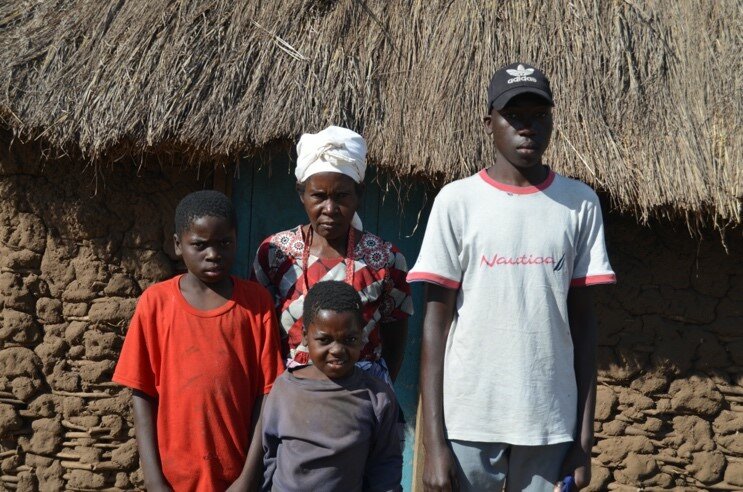
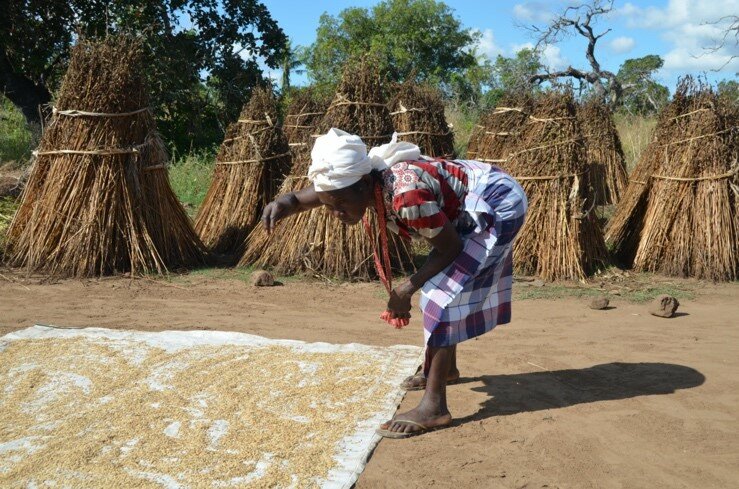
Maria Willian, the Director of Gurunguire primary school, talks about the positive impact of the Programme on school attainment and children's development. “Hunger is hunger. When you are hungry you have no energy – no energy for work, no energy for school," she said.
"Before, most children used to come to school only once a week or even give it up and abandon education. Now, the situation has improved.” According to the Director, the number of enrolled students and daily attendance has notably increased since the School Feeding Programme was launched.
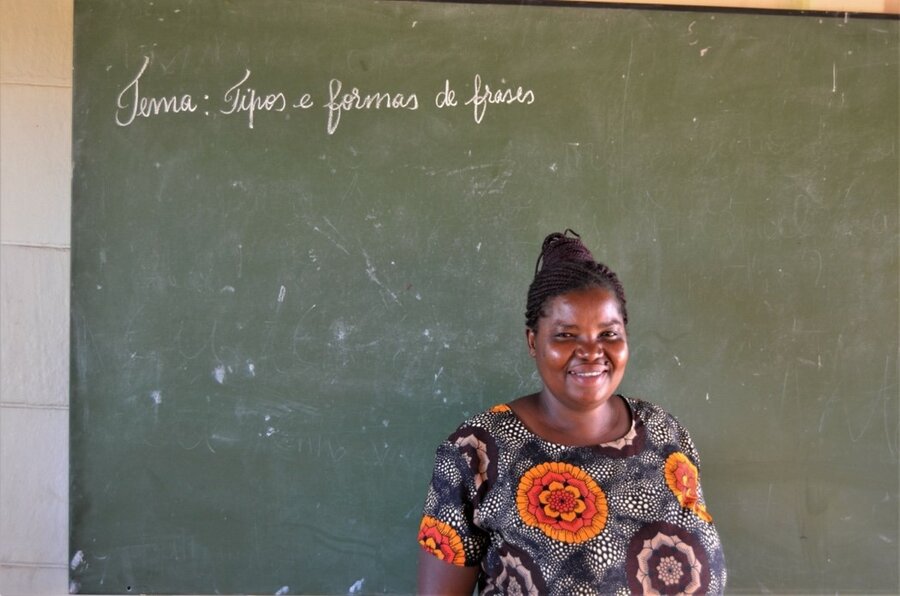
Antonella D'Aprile, WFP Representative and Country Director for Mozambique, said: “WFP believes that investing in a long-term approach during our life-saving operations is one of the foundations for future stability, peace, and independence. The Emergency School Feeding Programme part of the Global Partnership of Education is a great example, since it is investing in children's education and health, hence investing in the future of Mozambique”, she said.
The programme will continue until the end of the academic year, aiming to benefit an increased number of children. WFP also has been supporting the Ministry of Education with the implementation of the National Home-Grown School Feeding Programme, to support around 195,000 students in 340 schools across the country by the end of the year. WFP is also assisting an additional 68,000 students from schools that are not part of the home-grown programme, in the Tete and Nampula provinces, thanks to the support of the Government of Canada and the private sector.
